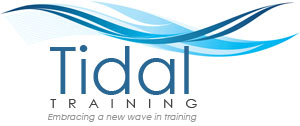
Making Critical Incident Debrief Training part of your employee mental health framework

Workplace mental health frameworks often focus on the individual, particularly those experiencing cumulative stress from heavy workloads that potentially combine with challenges at home. Whilst of use, these frameworks often omit processes and procedures for acute stressors that impact your group or team. Tidal Training believe that every organisation and group should incorporate Post Critical Incident Stress Debriefing into their framework as standard, training individuals to be facilitators of stress reduction following acute stress incidents.
What is Post Critical Incident Stress Debriefing (CISD)?
Following the Mitchell model, CISD is a supportive crisis intervention process, designed to support groups or teams, directly following an acute stress incident. It is not a replacement for, or delivery of psychotherapy, but aims at a reduction of distress and restoration of group cohesion at a time of acute stress.
When can it be applied?
The term ‘critical incident’ refers to a traumatic or crisis event that usually impacts a group of people. Critical Incident Stress Debrief Training can be particularly beneficial in a workplace or community setting, in preparation for a potential incident that causes acute stress. It can apply to any size or scale of event, for example:
- the sudden death of a colleague, partner or person in the community
- a workplace accident of any scale
- loss of a patient or client following a long-term period of care for example in medical or care environments
- a large-scale traumatic event directly affecting a region, team, and/or community; examples include Covid-19, the Grenfell Tower fire or the Manchester bombings.
- The size and scale of the event can be immaterial; it is the trauma, acute stress, and psychological distress that CISD seeks to help alleviate and resolve.
Why is it helpful?
In an acute stress scenario brought about by a critical incident, there is a natural stress response which can lead to overall distress. Distress occurs when a person has demands or expectations that do not match their abilities, skills and coping strategies at the time, leading to an overall decline in their wellbeing and performance in any situation. Moreover, critical incidents can significantly affect group dynamics, creating feelings of isolation, loss of morale, and a loss of cohesion, as individuals seek to cope with the traumatic event.
Critical Incident Stress Debriefing provides group stress facilitation, working with a team or community group to demobilise, defuse, and debrief following a period of acute stress. The aim is to show care and support, provide access to help and information, encourage communication and continued group cohesion, and deliver coping strategies during unfamiliar circumstances. The ambition is to prevent long-term health and wellbeing impacts by offering relevant and immediate support.
While it does not provide one-to-one support or psychotherapy, CISD does provide opportunity to identify individuals needing additional follow-up support, for example those experiencing an incident of acute stress in addition to an ongoing challenge of cumulative stress.
How to incorporate Critical Incident Stress Debriefing
As a method of group facilitation, CISD is often overlooked when establishing a mental health support framework in offices or community groups. It is a unique and highly specific form of support, so it is recommended that groups seek to:
- develop and maintain positive relationships and morale, for example between employer and employee, or group leader and group member
- identify individuals best suited to debriefing and facilitation. As with identifying a nominated first aider or mental health peer, look for volunteers who are keen to take an active role in supporting group dynamics
- provide training for these individuals in Post Critical Incident Stress Debriefing (CISD) and Psychological First Aid (PFA). Ideally, multiple members of the group should be trained, across different workplace departments or group sectors
- identify peer supporters. Whilst not facilitators themselves, peer supporters are individuals within a team or group who can be trained to identify the need for ongoing support. Individuals identified during the debrief and in need of continued support, can be monitored and supported by their peer, and referred for additional support should the need arise.
Tidal Training has innovated and further developed Post Critical Incident Stress Debrief and Psychological First Aid Training in the, supporting teams and groups to plan for unexpected traumatic events. Our training is in use in NHS Trusts, Emergency Services, Refugee Camps, Care Homes, Religious Establishments and Community Groups across the UK, as part of event preparedness and risk management. Speak to our team on 01242 371 999 for more information.
Link to our CISD course page.
